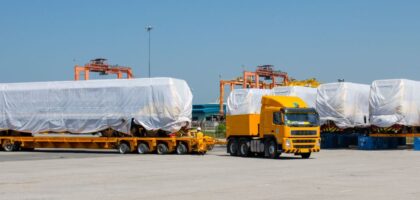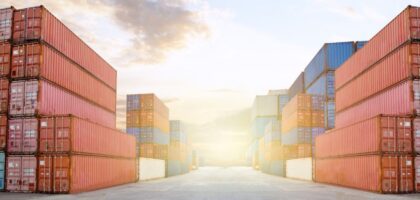Any company that handles, manufactures, designs, sells, or distributes articles, services, and/or related technical data on the USML must be ITAR compliant.
Have we thrown enough acronyms at you yet? Let’s back up a few steps to explain the above statement in a little more detail.
What is ITAR?
The International Traffic in Arms Regulations (ITAR) is a U.S. regulation that controls the export and import of defense-related items and services that are on the United States Munitions List (USML).
In order for a business to manufacture, sell, or distribute such articles, services, or related technical data under the USML, they must be registered with the State Department’s Directorate of Defense Trade Controls (DDTC), if required as spelled out on DDTC’s website. In addition, the business must also understand and abide by the ITAR as it applies to their USML-linked items or services. Basically, companies have to register with the DDTC and know exactly what is required of them to be considered “ITAR compliant” and then confirm they possess that knowledge.
What industries are typically heavily impacted by ITAR?
Many industries can be impacted by ITAR to some degree—depending on what is being manufactured, sold, or distributed—but the main ones are Aerospace and Aviation, Government and Defense, and Technology or Telecommunications.
Who needs to be ITAR-compliant?
Well, as stated above, any business that handles, manufactures, designs, sells, or distributes items or services on the USML. Some specific entities that must be ITAR compliant include:
- Wholesalers
- Distributors
- Computer Software/Hardware Vendors
- Third-party Suppliers
- Contractors
Furthermore, if a business wants to move goods that are listed on the USML, the freight forwarder or transportation company they choose to transport their freight must also be ITAR-licensed and certified, as well as in good standing compliance-wise.
What does this all mean for your company?
It’s important to be aware of what all is involved when manufacturing, designing, selling, or distributing of USML-linked articles and services, as well as how to register with the DDTC. But, that isn’t the end of this story. You must also remain vigilant and make sure you or your company do not violate ITAR compliance regulations. And if you’re wondering about penalties—yes, those exist if you blatantly disregard this regulation.
- Civil penalties can result in fines as high as $500,000 per violation
- Criminal penalties can result in fines up to $1,000,000 and 10 years of imprisonment per violation
And although you would think larger companies and corporations have a bigger target on their backs, Small and Medium-Sized Enterprises (SMEs) are most at risk due to nuances of export compliance.
Well, we’re all human…so what happens if you make an honest mistake?
Mistakes obviously happen. We’re only human. Sometimes the DDTC will consider leniency on certain occasions, but only under rare circumstances. ITAR actually provides businesses with the opportunity to voluntarily disclose errors. By being upfront about any mistakes that have occurred, and a proper action plan to improve moving forward, fines and penalties may be reduced or eliminated.
What should you and your business do to stay ITAR-compliant and avoid violations?
We don’t want to scare anyone when it comes to compliance, but it’s the reality. Rules and regulations constantly change so if your company is importing or exporting such items, you should not chance non-compliance of ITAR. There could be a lot on the line and much to lose by violating an important regulation such as this.
Make sure you are working with ITAR-compliant entities (if needed), including wholesalers, supplier, and third-party vendors, including your freight forwarder.
If you are selling ITAR-regulated products, be knowledgeable of your customers. You have an obligation to provide an export license if your goods are sold for export (whether you’re making the export arrangements or not), and you could be held responsible if your customer subsequently transfers your cargo to a restricted party.
Don’t get penalized for avoidable mistakes! ICAT Logistics has a knowledgeable team of ITAR experts who can keep you and your business compliant when importing and exporting your freight. Want to learn more about how we can help? Call your local ICAT office, account manager, or operations representative to discuss your ITAR and compliance-related needs or challenges. We’re always here to help!
Resources:
- What is ITAR Compliance? (Digital Guardian)
- What is ITAR Compliance? Definition and Regulations (Varonis)
- What is ITAR and Why is it Important? (RegDOX Solutions)




